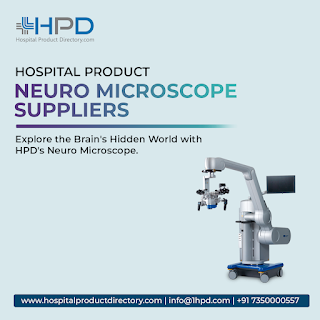Choosing the Right Neuro Microscope Supplier: Factors to Consider - HPD
1. Understand your specific requirements
2. Evaluate the supplier's reputation and track record
When it comes to choosing a neuro microscope supplier, evaluating their reputation and track record is of utmost importance. You want to ensure that you are partnering with a supplier who has a solid reputation in the industry and a proven track record of delivering high-quality products. Begin by performing thorough study on the supplier. Look for reviews, testimonials, and ratings from other customers who have purchased from them. Pay close attention to any feedback regarding the supplier's reliability, customer service, and the quality of their products. A supplier with a strong reputation will have positive reviews and a loyal customer base. Additionally, consider the supplier's track record in terms of their experience and longevity in the market. A supplier that has been in business for a significant amount of time is likely to have a wealth of industry knowledge, expertise, and established relationships with reputable manufacturers. This can provide you with assurance that they have a deep understanding of the neuro microscope market and can offer reliable and innovative solutions. Furthermore, evaluating the supplier's track record involves looking into their history of delivering products on time and meeting customer expectations. This can be determined by researching their order fulfillment process, lead times, and any information available on their after-sales support.
3. Assess the quality of the neuro microscopes
When it comes to neuro microscopes,
quality is of utmost importance. These highly specialized instruments are used in delicate procedures and require precision and accuracy. Therefore, it is essential to assess the quality of the neuro microscopes before making a decision on which neuro microscope supplier to choose. One crucial factor to consider is the resolution of the microscope. The resolution determines the level of detail and clarity in the images produced by the microscope. A high-resolution microscope will allow for better visualization and analysis of the neural structures, ultimately leading to more accurate diagnoses and treatments. Another aspect to evaluate is the magnification capabilities of the neuro microscope. Different procedures may require varying levels of magnification, so it is important to choose a microscope that offers a range of magnification options. This flexibility ensures that the microscope can adapt to the specific needs of different procedures and provide the required level of magnification for optimal visualization. Additionally, the lighting system of the microscope should be assessed. Adequate illumination is crucial for clear visualization and accurate analysis. Look for neuro microscopes that offer robust and adjustable lighting systems, allowing for optimal illumination of the surgical field. Durability and reliability are also critical factors to consider when assessing the quality of neuro microscopes. These instruments are subjected to rigorous use and must withstand constant handling and adjustments. Choose a supplier that offers neuro microscopes made from high-quality materials and equipped with sturdy and precise mechanisms to ensure long-lasting performance.
4. Consider after-sales support and service
When it comes to purchasing a neuro microscope, it is crucial to not only consider the quality and features of the product but also the after-sales support and service provided by the supplier. This is because, in the field of neurosurgery, having reliable technical support and prompt service is of utmost importance. Before making a decision, it is advisable to research and evaluate the reputation and track record of the potential suppliers. Look for suppliers who have a proven history of excellent customer service and support. Read appraisals and testimonials from other customers to add insights into their experiences. One key aspect to consider is the availability of technical support. A supplier that offers comprehensive technical support, including phone assistance and on-site visits, can be invaluable when facing any issues or challenges with the neuro microscope. This ensures that you have the necessary guidance and expertise readily accessible whenever you need it. Additionally, inquire about the warranty and maintenance services provided by the supplier. A reliable supplier should offer a reasonable warranty period and have a well-defined process for repair and maintenance. This includes the availability of spare parts and the efficiency of their repair service. It is also worth considering the supplier's responsiveness and communication channels. A supplier that is responsive to inquiries, quick to address concerns, and maintains clear and open lines of communication will greatly enhance the overall customer experience.




Comments
Post a Comment